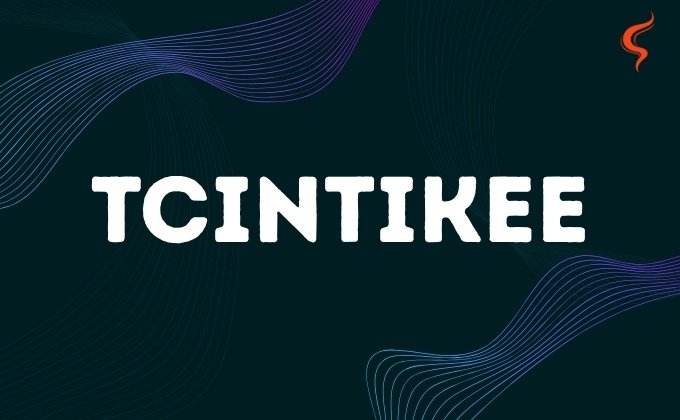In the ever-evolving landscape of digital innovation, Tcintikee has emerged as a term that captivates curiosity and sparks conversation across the internet. Though it remains somewhat mysterious, Tcintikee represents a fusion of technology, intelligence, and connectivity, driving how businesses, systems, and individuals interact in an increasingly automated world.
In this comprehensive guide, we’ll explore everything you need to know about Tcintikee—its meaning, uses, benefits, and why it’s becoming a crucial concept in the digital era.
What is Tcintikee?
At its core, Tcintikee stands for a transformational approach to digital intelligence and connectivity. It combines three vital principles —technology, Cognition, and integration —working together to optimize digital environments and create smart, adaptive systems.
In simpler terms, this refers to a system or philosophy that enables technology to learn, adapt, and connect seamlessly. It’s not a single tool or software but rather an idea that underlines the future of intelligent digital transformation.
How Tcintikee Works
The foundation of Tcintikee lies in its ability to blend data intelligence, automation, and human-centric design. Here’s how it operates:
- Data Integration – It collects, connects, and processes data from multiple sources to form a unified ecosystem.
- Adaptive Learning – Through AI and machine learning, it identifies patterns and improves decision-making without manual intervention.
- Smart Execution – It applies insights automatically to optimize operations, communications, and workflows in real-time.
This layered approach ensures that systems powered by it continuously evolve and remain relevant in a changing digital environment.
The Core Pillars of Tcintikee
Understanding it begins with its core elements that define its power and flexibility.
1. Technological Integration
The backbone of its seamless integration across different platforms—cloud networks, IoT devices, business applications, and AI systems. This ensures interoperability and efficiency.
2. Cognitive Intelligence
Tcintikee doesn’t just process data; it understands it. Using machine learning and AI-driven logic, this systems analyze, predicts, and acts intelligently, reducing the need for human oversight.
3. Human Experience
Unlike traditional automation, Tcintikee prioritizes user interaction. It focuses on improving the human experience, making systems intuitive, responsive, and accessible.
Applications of Tcintikee Across Industries
The influence of Tcintikee spans multiple sectors, each utilizing it for specific advancements.
1. Business Automation
Companies employ Tcintikee-based solutions to automate repetitive tasks, streamline workflows, and boost productivity. By integrating real-time analytics, Tcintikee enables faster, data-driven decision-making.
2. Healthcare
In healthcare, It supports patient management, diagnostics, and data security. Intelligent algorithms analyze medical data, helping doctors make faster and more accurate decisions.
3. Education
Learning platforms using this create adaptive learning environments that adjust to students’ needs. This leads to personalized learning experiences and improved engagement.
4. Digital Marketing
In marketing and SEO, it helps track consumer behavior, predict trends, and optimize campaigns. It enhances content strategies by identifying high-performing keywords and improving search visibility.
5. Smart Technology and IoT
Smart homes and connected devices are examples of Tcintikee in action—where machines interact intelligently to make daily life more efficient and convenient.
Advantages of Using Tcintikee
1. Increased Efficiency
By automating complex operations, Tcintikee reduces manual labor and increases workflow precision.
2. Cost Optimization
Automation minimizes resource waste, ensuring businesses achieve more with fewer expenditures.
3. Real-Time Decision Making
Tcintikee allows instant data processing and response, providing agility and competitiveness in dynamic markets.
4. Enhanced Security
Modern systems include strong encryption and data protection measures, keeping sensitive information safe.
5. Scalability
Built on adaptable frameworks, it can grow with your organization, expanding effortlessly as demands increase.
Challenges of Implementing Tcintikee
While Tcintikee presents immense potential, it also comes with challenges that organizations must address:
- Integration Complexity: Combining legacy systems with new technologies requires careful planning.
- Data Privacy Concerns: Managing vast amounts of user data demands robust cybersecurity practices.
- Skill Gaps: Companies must train teams to operate and maintain powered systems effectively.
- High Initial Investment: Advanced technology adoption can involve upfront costs, though the long-term ROI is significant.
Steps to Implement Tcintikee Successfully
For organizations eager to embrace this, a strategic approach is essential:
- Identify Key Areas for Automation – Determine which operations or processes could benefit from intelligent optimization.
- Select Compatible Tools – Choose platforms that integrate easily with your existing digital ecosystem.
- Build a Skilled Team – Train employees or hire experts who understand Tcintikee’s architecture and potential.
- Monitor and Adjust – Continuously assess system performance and make data-driven improvements.
When done right, Tcintikee integration can transform how a business operates, unlocking higher productivity and smarter decision-making.
The Future of Tcintikee
The future of Tcintikee lies in the evolution of artificial intelligence and digital interconnectivity. As AI and machine learning mature, it will become the framework through which intelligent ecosystems operate.
We can expect more personalized experiences, predictive analytics, and interconnected systems that adapt to human needs effortlessly. From virtual assistants to self-learning networks, it will shape the next generation of digital transformation.
Conclusion
In essence, Tcintikee represents a forward-thinking fusion of intelligence, connectivity, and human experience. It’s more than a concept—it’s a pathway to smarter technology and adaptive operations. As businesses and individuals embrace it, the boundaries between human intuition and machine intelligence will continue to blur, ushering in a new era of innovation.



